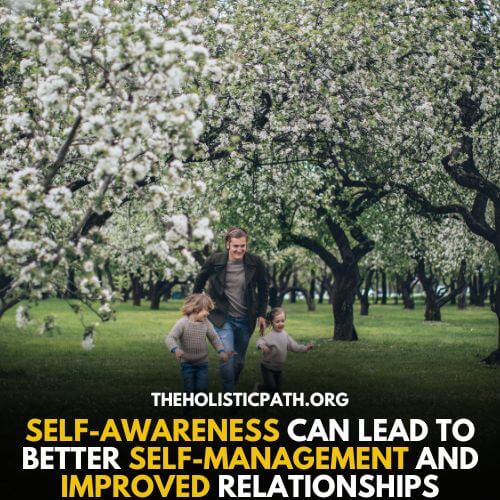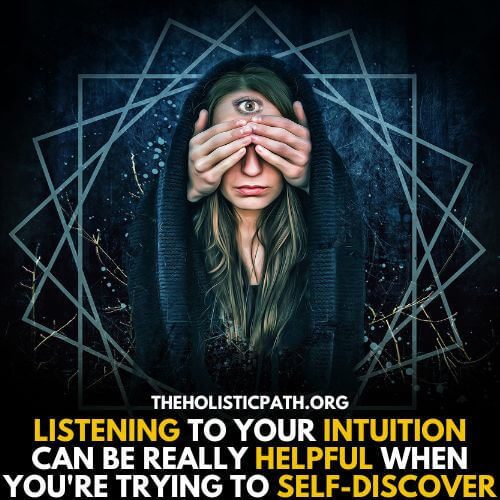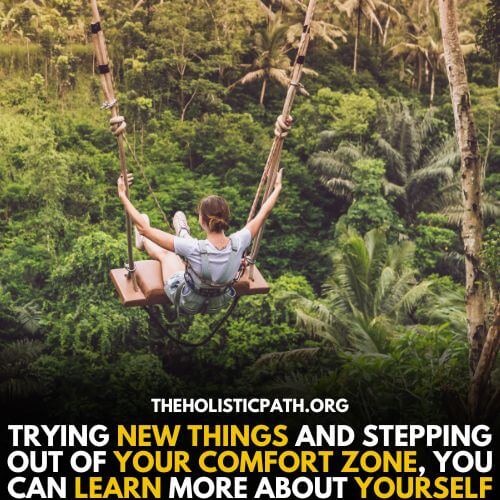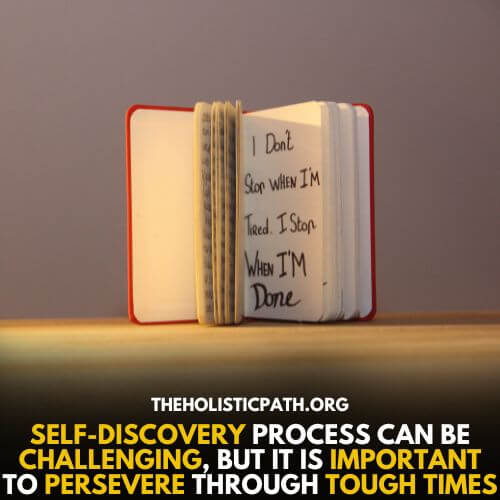Self-discovery techniques can be a great way to learn more about yourself and what you want out of life. However, with so many different techniques out there, it can be tough to know where to start.
In this article, we’ll take a look at some of the most popular self-discovery techniques and how they can help you find your purpose in life. We’ll also offer some tips on how to get the most out of these techniques. So if you’re ready to start exploring your self-identity, read on!
What Is Meant By Self-Discovery
Self-discovery is the process of finding out who you are and what you want in life. It’s about exploring your interests, values, beliefs, and personality, and learning to accept and be comfortable with yourself. Self-discovery can be a lifelong process, but it usually starts in adolescence or young adulthood, when you’re trying to figure out who you are and where you fit in the world.
Self-discovery can be exciting, rewarding, and self-affirming, but it can also be challenging and sometimes painful. The most important thing is to be patient with yourself and keep exploring until you find what feels right for you.
Is It Important To Discover Yourself?
Self-discovery is a process of uncovering who you are and what you want in life. It’s a lifelong journey that can be both exciting and challenging. While there’s no right or wrong way to go about it, there are some scientific reasons why self-discovery is important.
For one, self-discovery can help you build self-awareness. This means understanding your thoughts, feelings, and behaviors, and how they impact others. Self-awareness can lead to better self-management and improved relationships. It can also help you make better decisions in life, as you’ll be more aware of your values and what’s important to you.

Another reason self-discovery is important is that it can help boost your self-esteem and confidence. When you know who you are and what you’re capable of, it’s easier to believe in yourself. This can lead to better performance at work or school and improved relationships with others.
Self-discovery can also help reduce stress and anxiety. When you know yourself better, you’re less likely to worry about things that don’t matter as much. So take some time for self-discovery – it may just be the best thing you ever do for yourself!
20 Effective Self-Discovery Techniques
1. Journaling
Many people find that self-discovery techniques, such as journaling, can be extremely helpful in gaining a better understanding of themselves. Self-discovery requires reflection and self-awareness. Journaling can help you to connect with your inner self and become more self-aware.
Journaling can provide an outlet for exploring one’s thoughts and feelings, and it can also be a helpful way to track one’s progress over time. Journaling can be a useful tool for identifying patterns in one’s behavior or mood.
By keeping a record of what is happening in their lives, people who journal can sometimes gain valuable insights into their own behavior and emotions. Ultimately, self-discovery techniques like journaling can be beneficial for anyone who is interested in gaining a greater understanding of themselves.
2. Meditation
People have been using self-discovery techniques for centuries in order to gain a better understanding of themselves. Meditation is one such technique that can be used for self-discovery. When you meditate, you clear your mind of all distractions and focus on your breath.
This allows you to get in touch with your thoughts and feelings, and to become more aware of your own inner workings. Through self-discovery techniques like meditation, you can begin to understand your strengths and weaknesses, your likes and dislikes, and what makes you tick.
In short, self-discovery can help you to know yourself better, which can lead to a more fulfilling life.
3. Yoga
Self-discovery techniques like yoga can be really effective in helping you to connect with your inner self and find out what makes you tick. When you strip away all the distractions of everyday life and focus on your breath and your body, it gives you a chance to tune in to your thoughts and feelings and get in touch with what’s going on inside.
Yoga helps to still the mind and bring you into the present moment, which can be a very powerful experience. It’s also incredibly good for your physical health! So if you’re looking for a way to explore yourself and find out what makes you happy, yoga is definitely worth a try.
4. Exercise
Exercise can help to improve mood, cognitive function, and self-esteem. It can also provide an outlet for stress relief and self-expression. When it comes to self-discovery, exercise can be a valuable tool. By challenging oneself physically, one can push past comfort levels and discover hidden talents and abilities.
In addition, the endorphins released during exercise can help to create a sense of well-being and calmness, providing a perfect environment for self-reflection. Used correctly, exercise can be a powerful tool for self-discovery.
5. Spending Time In Nature
Spending time in nature can be an excellent way to learn more about yourself. In today’s fast-paced world, it can be easy to get caught up in the hustle and bustle of everyday life and forget what truly matters to you.

However, when you take the time to slow down and appreciate the natural world around you, it can be easier to find your true passions and connect with your inner self. There are many self-discovery techniques that you can try while spending time in nature, such as journaling, meditation, or simply taking a few deep breaths and observing your surroundings.
Or you can go for a hike, sit by a river, or simply take a walk in the park. By taking the time to connect with nature, you may just find that you have a greater understanding of who you are and what you want out of life.
6. Connecting With Others
Everyone has their own unique self-discovery techniques that work for them. For some people, self-reflection and time alone are key to understanding themselves better. However, for others, connecting with others is what helps them learn more about themselves.
Whether it’s talking to friends and family about life experiences or simply observing the behavior of those around you, interacting with others can give you important insights into your own personality and motivations. Also, seeing how you react to and interact with others can also be helpful in self-discovery.
Do you find yourself getting along with everyone easily? Or do you tend to butt heads with certain types of people?
Paying attention to these patterns can help give you a better understanding of who you are as a person. So if you’re struggling to get to know yourself better, don’t be afraid to reach out and connect with others. It just might be the key to self-discovery.
7. Connecting With Your Intuition
Intuition is that inner voice that we all have. You know, the one that is always nudging you to do or not do something. Intuition is primal and comes from a place of knowing without any cognitive thought. It’s a hunch or a feeling that bypasses the logical part of your brain. And it’s always trying to tell you something.

Listening to your intuition can be really helpful when you’re trying to self-discover. Let’s say you’re considering whether or not to quit your job. All the logical pros and cons point to you staying put, but your intuition is saying otherwise.
In this case, it might be worth listening to that little voice inside your head. After all, it knows you better than anyone else does!
There are lots of different self-discovery techniques out there, but following your intuition should definitely be one of them. It might not always lead you in the right direction, but it will help give you a more accurate sense of who you are and what you want in life. So next time your intuition speaks up, listen to it! Who knows, it might just surprise you… in a good way.
8. Reconnecting With Your Passions
One of the best ways to get to know yourself is by reconnecting with your passions. Whether it’s something you used to love doing as a child or something you’ve always been interested in, taking the time to pursue your passions can help you uncover new things about yourself. This self-discovery can be invaluable in helping you figure out who you are and what you want in life.
There are a variety of self-discovery techniques that can be used to reconnect with your passions. One of the simplest is to make a list of all the things you’re passionate about. Once you have your list, start exploring each item on it. If there’s something on your list that you’ve never tried before, now is the perfect time to give it a shot.
You never know what hidden talents or interests you may discover along the way. Pursuing your passions can be a fun and rewarding experience, so don’t be afraid to give it a try.
9. Creating A Personal Altar
Self-discovery is an important part of life. It can help us to understand who we are and what we want out of life. There are many different self-discovery techniques, but one that can be particularly helpful in creating a personal altar.
An altar is a physical space that you consecrate to a specific purpose. When you create an altar for self-discovery, you are creating a space where you can go to reflect on your life and your journey.
You can use your altar to set intentions, meditate, pray, or simply spend time in reflection. The act of creating an altar can itself be a form of self-discovery, as it requires you to think about what is important to you and what you want to focus on.
If you are interested in self-discovery, consider creating a personal altar. It can be a simple space with just a few items that are meaningful to you, or it can be more elaborate. However you choose to create it, your personal altar can be a valuable tool for self-discovery.
10. Keeping A Dream Journal
Dreams are a window into our subconscious mind, and keeping a dream journal can be an incredibly powerful self-discovery tool. By writing down our dreams, we can begin to see patterns and themes that we might otherwise miss. We can also start to see how our dreams are connected to our waking life experiences.

Dream journaling can help us make connections that we never would have thought of on our own, and it can also help us to better understand our fears, desires, and motivations. In short, keeping a dream journal is a great way to learn more about ourselves and the world around us.
11. Practicing Self-Compassion
Self-compassion is one of the most important self-discovery techniques because it allows you to explore your own thoughts and emotions without judgment. When you are able to be compassionate with yourself, you are able to see yourself more clearly and gain a better understanding of your own wants and needs.
Self-compassion also allows you to set realistic goals for yourself and develop a more positive self-image.
Furthermore, self-compassion allows you to forgive yourself for past mistakes and move forward with your life. Self-compassion is an essential tool for self-discovery because it allows you to explore your thoughts and emotions without judgment, set realistic goals, develop a more positive self-image, and forgive yourself for past mistakes.
12. Forgiving Yourself
Self-discovery is an interesting process that can be very helpful in life. A lot of self-discovery has to do with learning more about who you are and what motivates you. Forgiving yourself can be a big part of self-discovery because it can help you to move on from past mistakes.
If you’re constantly dwelling on things that you’ve done wrong, it’s going to be hard to focus on the present and learn more about yourself. However, if you can forgive yourself, it will be easier to learn from your mistakes and figure out what you want to do differently in the future.
There are a lot of different self-discovery techniques out there, so forgiving yourself is just one way that you can start the process.
13. Focusing On Your Strengths
Self-discovery is not about self-improvement. It’s about self-acceptance. It’s about understanding who you are and learning to love yourself – warts and all.
One of the best ways to get to know yourself is by focusing on your strengths. Too often, we dwell on our weaknesses and shortcomings. This can lead to feelings of inadequacy and low self-esteem. But when you focus on your strengths, you start to see yourself in a different light. You begin to appreciate your unique talents and qualities. And this can be hugely empowering.
14. Setting Intentions
Just as setting goals can help you achieve success in various areas of your life, setting intentions can also be a powerful self-discovery tool. By taking the time to connect with your innermost desires, you can gain a greater understanding of who you are and what you want out of life. Here are some self-discovery techniques that can be used to set intentions:
- Get clear on what you want: What are your deepest desires? What kind of life do you want to live? Spend some time journaling or meditating on these questions.
- Set realistic goals: Once you have an idea of what you want, it’s important to set realistic goals that will help you get there. What steps do you need to take to make your dreams a reality?
- Create a self-care plan: In order to reach your goals, it’s important to take care of yourself both physically and mentally. Create a self-care plan that includes healthy habits like exercise, nutrition, and self-love.
By taking the time to set intentions, you can begin the journey of self-discovery and create a roadmap for success.
15. Be Patient With Yourself
One of the best things you can do for yourself is to be patient with yourself. This can be difficult, especially when you feel like you’re not making any progress. But if you’re patient, and keep working at it, you will gradually start to discover more about yourself. Here are some self-discovery techniques that can help:
- Talk to yourself: This may seem strange, but it can actually be very helpful. Talk to yourself out loud, or even just in your head. Ask yourself questions, and really think about the answers. This can help you to understand your thoughts and feelings better.
- Try new things: One of the best ways to learn more about yourself is to try new things. Step out of your comfort zone and try something that you’ve always wanted to do. You may be surprised at what you discover.
16. Look At Yourself From A Different Perspective
Self-discovery is the act of learning more about who you are as a person. It can be a lifelong journey or something that you explore for a specific period of time. There are many self-discovery techniques that you can use to learn more about yourself, and one of them is to look at yourself from a different perspective.
This means stepping outside of your normal ways of thinking and seeing things in new and different ways. By doing this, you can start to gain a better understanding of who you are and what makes you tick.
It can be a tough process, but it’s definitely worth it if you want to learn more about yourself. So go ahead and give it a try – you might be surprised at what you discover.
17. Embrace Change
It’s said that change is the only constant in life. And while that may be true, it’s also true that change can be difficult to cope with. Whether it’s a big change like starting a new job or moving to a new city, or a smaller change like taking on a new hobby, embracing change can be a challenge.

But it’s also an opportunity for self-discovery. By trying new things and stepping out of your comfort zone, you can learn more about yourself and what you’re capable of. So next time you’re facing a change, instead of resisting it, try to see it as an opportunity for self-discovery. Who knows, you might just surprise yourself.
18. Nourish Yourself Mind, Body, And Spirit
Self-discovery is an ongoing process that can be helped by nourishing your mind, body, and spirit. Here are some self-discovery techniques that can help you get started:
- Spend time in nature: Connecting with the natural world can help you feel grounded and centered. Spend time each day outside, even if it’s just a few minutes. Take a walk in the park, sit under a tree, or simply observe the world around you.
- Practice mindfulness: Learning to focus your attention on the present moment can help you become more aware of your thoughts and feelings. There are many different ways to meditate, so find one that works for you. There are also lots of great apps and online resources available to get started.
- Get in touch with your creative side: Whether it’s painting, writing, dancing, or another creative activity, expressing yourself creatively can be a great way to explore your thoughts and feelings. Don’t worry about being perfect – just let yourself go and see what comes out.
19. Take Care Of Your Physical Health
Most people think of self-discovery as something that happens when they’re sitting in front of a therapist, digging deep into their childhood memories. But self-discovery can also happen through taking care of your physical health. Here are some self-discovery techniques that you can try:
- Get enough sleep: Sleep is essential for both physical and mental health. When you’re well-rested, you’re better able to cope with stress and make positive choices.
- Eat healthy: What you put into your body affects your mood and your energy levels. Eating nutritious foods helps to improve brain function and can even boost self-esteem.
- Exercise: Exercise releases endorphins, which have mood-enhancing effects. It can also help to increase energy levels and reduce stress.
- Take breaks: When you’re feeling overwhelmed, it’s important to take a step back and relax. Taking breaks throughout the day helps to rejuvenate the mind and body.
By taking care of your physical health, you can set the stage for self-discovery. By making small changes in your daily routine, you can start to feel better physically and mentally, setting the foundation for a more positive outlook on life.
20. Cultivate A Positive Mindset
Self-discovery is about finding out who you are and what makes you tick. It’s a lifelong journey that can be both incredibly rewarding and challenging. One of the best ways to set yourself up for success on this journey is to cultivate a positive mindset. Here are just a few ways that a positive outlook can help you in self-discovery:
- You’ll be more open to new experiences: If you’re approaching self-discovery with a positive attitude, you’ll be more likely to try new things and step outside your comfort zone. This can lead to all sorts of new insights and discoveries about yourself.
- You’ll be less defensive: It’s easy to get defensive when you feel like you’re being critiqued or challenged. But if you’re open to self-reflection and have a positive outlook, you’ll be able to listen to feedback without getting defensive and learn from it.
- You’ll be more likely to persist: Self-discovery can be challenging, and there will inevitably be times when you feel like giving up. But if you have a positive mindset, you’ll be more likely to push through the tough times and keep going until you reach your goal.
How To Stay On Track During Your Self-Discovery Journey
Self-discovery techniques are the key to helping you find your purpose in life. Self-discovery techniques will allow you to stay on track and be more efficient with your time. Self-discovery techniques can be used in many different ways, but here are three self-discovery techniques that will keep you on track while you journey to finding your purpose in life:
- Wake up each day and ask yourself what you want to achieve that day. This will help to focus your attention on what is important and help you stay on track.
- Make a list of things that make you happy and things that make you unhappy. This will help you identify what is important to you and what is not.
- Set goals for yourself and take action towards those goals. This will help keep you motivated and help you see progress. Self-discovery is a journey, not a destination. It is an ongoing process that helps us to grow and evolve as individuals. By using self-discovery techniques, we can stay on track and continue moving forward on our journey.
5 Tips For Self-Discovery
One of the most important things you can do in life is to get to know yourself. That might sound like a silly thing to say, but so many people go through life without ever really stopping to think about who they are and what they want out of life.
Self-discovery isn’t always easy, but it’s definitely worth the effort. Here are a few tips to help you get started:
- Be honest with yourself. It is important, to be honest about your thoughts, feelings, and desires. If you are not honest with yourself, it will be difficult to truly discover who you are.
- Be patient. The self-discovery process can take time, so be patient with yourself. allow yourself the time and space to explore who you are without rushing the process.
- Be open-minded. It is important to keep an open mind during self-discovery. You may find out things about yourself that you were not expecting, but try not to judge yourself too harshly. Instead, accept these new discoveries and use them to help shape your self-identity.
- Be flexible. Just as self-discovery can be a flexible process, so too should your self-identity be flexible. As you learn new things about yourself, be willing to adapt and change your self-identity accordingly.
- Be resilient. The self-discovery process can be challenging at times, but it is important to persevere through the tough times. Remember that you are capable of handling whatever challenges come your way and that discovery is worth the effort.

Questions For Self-Discovery
Below are some self-discovery questions to get you started on your journey of self-awareness. Spend some time reflecting on each question, and be honest with yourself in your answers.
- What are my core values?
- What are my strengths and weaknesses?
- What kind of person do I want to be?
- What are my goals and dreams?
- How do I want to be remembered?
- Am I living a life that is true to myself, or am I living someone else’s version of what they believe is the right way to live?
- What makes me happy?
- What do I need to change about myself in order to achieve my goals?
- Do I have any self-limiting beliefs that are holding me back from reaching my full potential?
- How can I grow and develop as a person?
- What contribution can I make to the world around me?
One way to start your self-discovery journey is to ask yourself questions about fear and courage.
- What are you afraid of?
- What would it take for you to face your fears?
- What does courage mean to you?
- What are some acts of courage that you admire in others?
Asking yourself these types of questions can help you to learn more about what makes you tick and what motivates you. In turn, this self-knowledge can help you to make better choices in your life and pursue the things that truly matter to you. So don’t be afraid to ask yourself tough questions – it just might be the best thing you ever do for yourself.
Self-Discovery Techniques-Conclusion:
So there you have it – a few self-discovery techniques that can help you to get to know yourself better. As with anything in life, the key is to experiment and find what works best for you.
There is no single right or wrong way to go about self-discovery, so don’t be afraid to mix and match different techniques until you find a combination that works for you. And above all, remember to have fun! After all, self-discovery is supposed to be an enjoyable journey, not a chore. So get out there and start exploring!
Self-discovery is an ongoing process that can help you to learn more about who you are, what you want out of life, and what makes you happy. By trying different self-discovery techniques, you can get a better sense of who you are and what you want out of life. So don’t be afraid to experiment – self-discovery is a journey, not a destination. And most importantly, remember to have fun!
